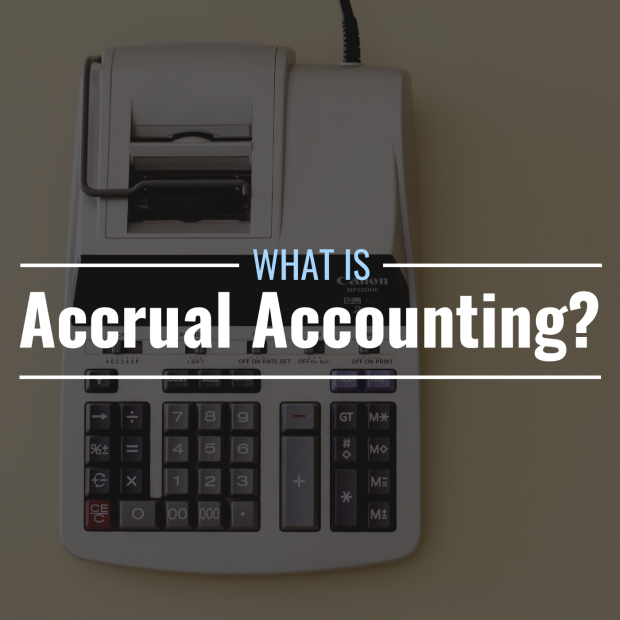
In business, all financial transactions must be recorded in a journal. This recording process is known as accounting, and there are several different ways it can be done.
What is accrual-basis accounting?
Accrual basis accounting (sometimes called the accrual method of accounting or simply accrual accounting) is the practice of recording all financial transactions when they occur, even if payment isn’t yet made or received. In other words, a business that practices accrual accounting records all revenue as soon as it is invoiced and all expenses as soon as they are incurred, regardless of when the actual cash transactions take place.
Accrual accounting allows businesses to record relevant revenues and expenses during the periods (days, weeks, months, fiscal quarters, etc.) they occurred, even if these transactions were performed on credit, and payment isn’t sent or received until a subsequent period.
What does accrual actually mean in accounting?
In accounting, an accrual is simply a record of a revenue or an expense that an accountant makes in a journal. An accountant following accrual-based accounting procedures records all revenues and expenses immediately rather than waiting until payment has actually been sent or received.
Accrual accounting vs. cash accounting: What’s the difference?
Cash accounting is the main alternative to accrual accounting. Unlike accrual accounting, in which all transactions are recorded immediately, cash accounting requires that transactions be recorded only once actual payment has been sent or received. In other words, the date of a cash-accounting accrual must match the date of the relevant payment and may not necessarily match the date on the transaction’s invoice.
Accrual accounting example
If a fictional company called Acme Adhesives sent an invoice to a client for $4,000 on June 30th, and the client remitted payment nine days later on July 9th, that $4,000 of revenue would be recorded in an accounts receivable account on June 30th, so it would be counted as June revenue using the accrual accounting method.
If Acme Adhesives instead used cash-based accounting, they would record this revenue when payment was received on July 9th, so it would count as July revenue.
What are the benefits and drawbacks of accrual accounting?
The primary benefit of accrual accounting is that it provides an accurate and up-to-date picture of where a business’s finances theoretically stand at any given point in time, assuming all due payments will actually be sent and received. This allows a company’s leadership to make more informed decisions about how to utilize resources moving forward. Additionally, accrual accounting is preferred by the Financial Accounting Standards Board, the organization that created the Generally Accepted Accounting Principles (GAAP).
The main drawback of accrual accounting is that it doesn’t actually reflect the amount of cash a business possesses at any given time since all revenues and expenses are recorded immediately, regardless of whether payment has actually been sent or received. Additionally, accrual accounting is more complex than cash accounting and therefore requires more manpower and resources, making it somewhat time-consuming for smaller companies that don’t have a large accounting staff.
Pros and cons of accrual accounting
| Pros | Cons |
|---|---|
Provides a more accurate picture of company’s financial position |
Requires a higher number of transactions to be recorded |
Allows for better financial decision-making and resource-management |
Often requires adjustments |
Preferred by GAAP, SEC, and investors |
Doesn’t always immediately reflect a company’s current cash flow situation |
Is more easily scalable as a business grows |
May be difficult for smaller businesses to keep up with |
What are the 4 main types of transactions recorded under accrual accounting?
- Accrued revenues: Accrued revenues are payments that a company is formally owed but has not yet received. These transactions are recorded when a company sells something on credit and is waiting to receive payment later.
- Immediate revenues: Immediate revenues are payments that a company receives as soon as it confirms a transaction. In other words, this is a transaction in which a company sells something and receives payment immediately.
- Accrued expenses: Accrued expenses are debts that a company formally owes but has not yet paid. These transactions occur when a company purchases something from another on credit but has yet to pay for it.
- Immediate expenses: Immediate expenses are debts that the company pays as soon as they are incurred. These transactions are recorded when a company buys something and pays for it immediately.
Is accrual accounting required by GAAP? What businesses have to use accrual accounting?
Generally Accepted Accounting Principles (GAAP) do require the use of accrual accounting, but not all businesses are required to follow the tenets of accrual accounting.
That being said, the Securities and Exchange Commission (SEC) requires all publicly traded companies to use accrual accounting in the preparation of public financial statements as required by GAAP. The SEC enforces this requirement so that all investors have access to public companies’ financial information and that all of this information is presented according to the same protocols.
Additionally, the Internal Revenue Service (IRS) requires that any business with more than $5 million in sales or $1 million in gross receipts per year use the accrual method, regardless of whether it is publicly traded.







